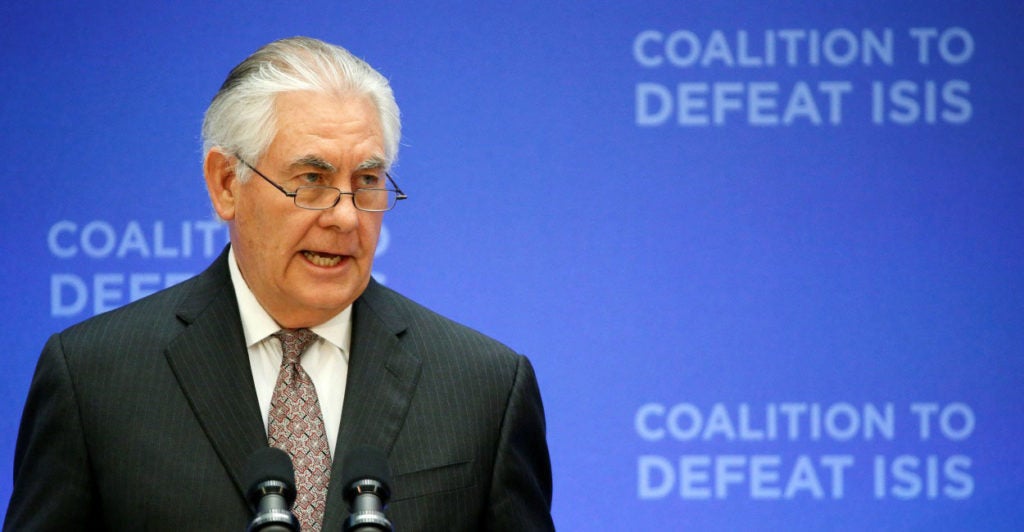Ministers from the 68 nations that comprise the Global Coalition to Counter ISIS converged on Washington, D.C., this week to discuss how best to counter the Islamic State, also known as ISIS.
Countries from the Middle East, Africa, Americas, and Asia were represented. However, it says much about the nature of the current ISIS threat that 38 of the 68 countries present were European.
The risks to Europe from ISIS and those drawn to the group’s ideology remain severe. The nature of this threat was underlined just this week in London, where a radicalized 52-year-old British man, Khalid Masood, killed four people (including one American) and injured dozens more just outside the doors of Westminster.
Just the week prior, a 39-year-old French man, Ziyed Ben Belgacem, tried to take a soldier hostage at Orly Airport after having injured a police officer in an earlier shooting incident. Belgacem was shot and killed at the airport, having stated his intention “to die for Allah.”
Meanwhile, the threat posed by foreign fighters returning from the “caliphate” is a daily concern, and likely will continue to be for years to come.
This should be of great concern to the U.S. government. European security remains vital to American interests.
This is not only because millions of U.S. citizens live in and visit the Continent every year, but also because America shares an interest in defending those values it shares with much of Europe—belief in freedom, democracy, and the rule of law.
Therefore, the U.S. should wield the significant influence it has with its European partners to encourage them to pursue policies that will increase collective security.
European countries’ military contribution to the war effort against ISIS is one possible area of discussion. The vast majority of airstrikes against the group in Iraq and Syria are carried out by the U.S. and it is no secret that most NATO countries are not meeting their defense spending requirements.
The U.S. could also encourage European countries to dedicate more funding to counterterrorism and redouble its efforts to break down domestic intelligence firewalls.
This is particularly a problem for continental Europe. As Philip Hammond, when speaking as U.K. foreign secretary (and now chancellor of the exchequer), pointed out:
Most of our partners in Europe have an internal and an external agency and the two don’t always work closely together… [T]here are different legal structures, different powers … even turf wars.
European governments also need to be implored to adopt a tougher approach to law and order (indeed, this is something that the Obama administration was warning of as far back as July 2014).
This not only means tougher sentences for those convicted of terrorism offenses. It also means addressing prison overcrowding and reversing excessively tolerant attitudes toward criminality.
For example, a member of the ISIS cell that carried out the Brussels attacks of February 2016 was free, despite having previously been convicted of shooting a police officer with a Kalashnikov during a bank robbery and trying to flee to Syria.
Also relevant to this conversation is the issue of prison radicalization—a major issue that is blighting countries across the Continent and to which governments are struggling to come up with a satisfactory solution.
Fixing all of the above would not remove the threat to Europe. It does not even touch upon the activities of al-Qaeda, the security and integration issues that the huge refugee flow into Europe from the Middle East and Africa in recent years presents, and the dangers of Islamist ideology more generally.
However, fixing these issues would go some way toward reducing the risk from ISIS and those that have proved vulnerable to ISIS recruitment.
